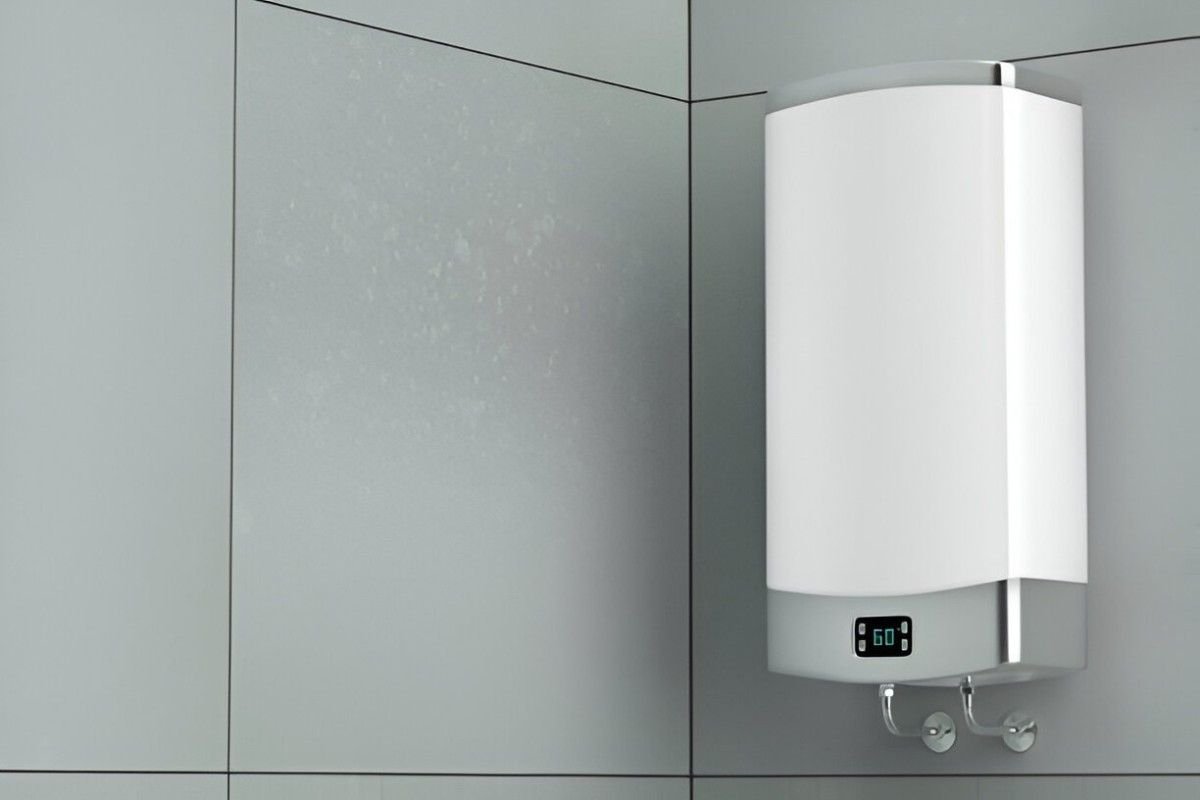If you’re in the market for a new water heater, you’ve probably come across the term “smart water heater.” These devices offer innovative features like remote control, energy efficiency monitoring, and even learning algorithms to adjust to your usage habits. But with so many options available, choosing the best smart water heater can feel overwhelming. In this guide, I’ll walk you through everything you need to know to make an informed decision.
Table of Contents
Understanding Smart Water Heaters
A smart water heater connects to your Wi-Fi network and offers features like mobile app control, scheduling, and real-time performance monitoring. Some models integrate with smart home systems, enabling voice control and automation. Here’s a quick comparison to understand how they differ from traditional water heaters:
| Feature | Traditional Water Heater | Smart Water Heater |
|---|---|---|
| Remote Control | Not Available | Available via mobile app |
| Energy Usage Insights | Not Available | Detailed monitoring and reporting |
| Scheduling | Manual | Automated via app or system |
| Learning Capabilities | None | Adapts to your usage patterns |
| Smart Home Integration | Not Available | Often compatible with systems |
Understanding these differences will help you decide if a smart water heater aligns with your needs and lifestyle.
Key Factors to Consider When Choosing a Smart Water Heater
1. Type of Water Heater
Smart water heaters come in different types, and choosing the right one depends on your household’s hot water needs:
- Tank Water Heaters: These store a set amount of water and heat it continuously. While reliable, they can be less energy-efficient compared to tankless models.
- Tankless Water Heaters: These heat water on demand, saving energy but sometimes struggling with simultaneous high demand.
- Hybrid Water Heaters: Combining a heat pump with a storage tank, these are energy-efficient but have a higher upfront cost.
| Type | Pros | Cons |
|---|---|---|
| Tank | Reliable for consistent usage | Higher energy consumption |
| Tankless | Energy-efficient, unlimited hot water | Expensive initial installation |
| Hybrid | Highly energy-efficient | Bulkier, higher upfront cost |
Evaluate your household size, water usage patterns, and installation space before choosing a type.
2. Energy Efficiency
Smart water heaters often come with energy-efficient features. Look for models with:
- Energy Star Certification: Ensures the heater meets strict energy efficiency guidelines.
- Energy Factor (EF): A higher EF indicates better efficiency.
- Scheduling and Learning Features: These can reduce energy consumption by heating water only when needed.
Consider the long-term savings on energy bills when evaluating efficiency. For example, hybrid water heaters may cost more initially but can save significant amounts annually.
3. Connectivity and Smart Features
Connectivity options can vary. Here’s what to look for:
- Wi-Fi Connectivity: Essential for remote control via a smartphone app.
- App Features: Check for ease of use, scheduling options, and energy usage tracking.
- Smart Home Integration: If you already use systems like Alexa, Google Home, or Apple HomeKit, ensure compatibility.
- Diagnostic Tools: Some models send alerts for maintenance needs or potential malfunctions.
4. Capacity and Flow Rate
Choosing the correct capacity or flow rate is crucial. For tank models, consider the tank size. For tankless models, evaluate the flow rate (measured in gallons per minute or GPM). Here’s a guideline:
| Household Size | Tank Capacity (Gallons) | Tankless Flow Rate (GPM) |
|---|---|---|
| 1-2 People | 30-40 | 3-5 |
| 3-4 People | 50-60 | 6-8 |
| 5+ People | 80+ | 9+ |
Ensure the water heater you choose can handle your household’s peak hot water demand.
5. Installation Requirements
Smart water heaters may have specific installation requirements. Check:
- Space and Ventilation: Some models require adequate room and proper ventilation.
- Electrical Needs: Verify if your home’s electrical system can support the new heater.
- Professional Installation: Certain types, like hybrid and tankless models, often need expert installation, which adds to the cost.
6. Cost and Warranty
While smart water heaters can be more expensive upfront, they offer savings over time through energy efficiency. Evaluate:
- Initial Cost: Include the price of the heater and installation.
- Operating Costs: Factor in electricity or gas usage.
- Warranty: Longer warranties often indicate better quality and reliability.
Comparing Popular Smart Water Heater Models
To help you further, here’s a comparison of some popular models:
| Model | Type | Capacity | Energy Factor | Smart Features | Price |
|---|---|---|---|---|---|
| Rheem EcoNet Hybrid | Hybrid | 50 Gallons | 3.75 | Wi-Fi, scheduling, energy tracking | $1,500 – $2,000 |
| Rinnai RL Series | Tankless | Unlimited | 0.82 | App control, voice integration | $800 – $1,200 |
| A.O. Smith Signature | Tank | 40-80 Gallons | 0.92 | Wi-Fi, diagnostic alerts | $600 – $1,000 |
Tips for Maintaining a Smart Water Heater
Once you’ve chosen and installed a smart water heater, proper maintenance will ensure it runs efficiently:
- Flush Regularly: Prevents sediment buildup, especially for tank models.
- Check Connections: Ensure the Wi-Fi and app remain functional.
- Monitor Energy Usage: Use app insights to optimize settings.
- Schedule Annual Inspections: Professional check-ups can prolong the heater’s life.
Final Thoughts
Choosing the best smart water heater depends on your specific needs. Whether you prioritize energy efficiency, advanced features, or long-term cost savings, there’s a model out there for you. By understanding the key factors and comparing popular options, you can make a decision that fits your household and budget. Remember, investing in a smart water heater is not just about convenience but also about long-term savings and sustainability.





